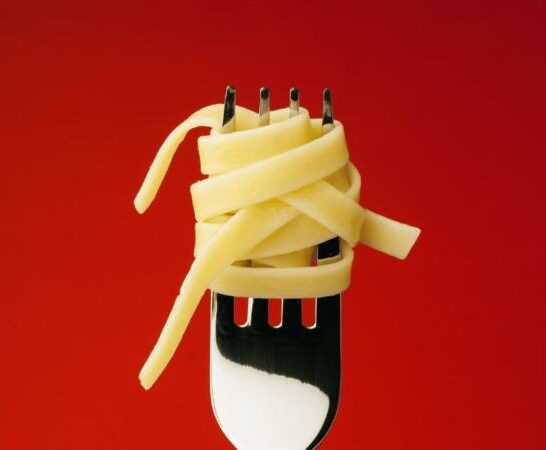We’ve all been there, you go to make pasta and end up making too much. When it comes to storing pasta, sometimes you may find a clumpy mess when you go to open your container the next day. When pasta sticks together overnight, the texture and heating process can be affected. It is hard to evenly heat pasta that is stuck together.
Oftentimes, you will find that the center parts of your pasta are still cold. So, rather than tossing your leftover pasta, how do you prevent it from sticking together?
How to Stop Pasta Sticking Together Overnight
You can stop your pasta from sticking together overnight by rinsing it with cold water. Using a colander, toss your cooked pasta in cold water for a minute or two. The cold will cause your pasta noodles to contract and prevent any residual stickiness. This way, when you go to put your pasta into a container, the noodles will not stick together as there is no remaining heat left in the noodles. Cooking your pasta as directed will also make it far less likely for your noodles to stick together.
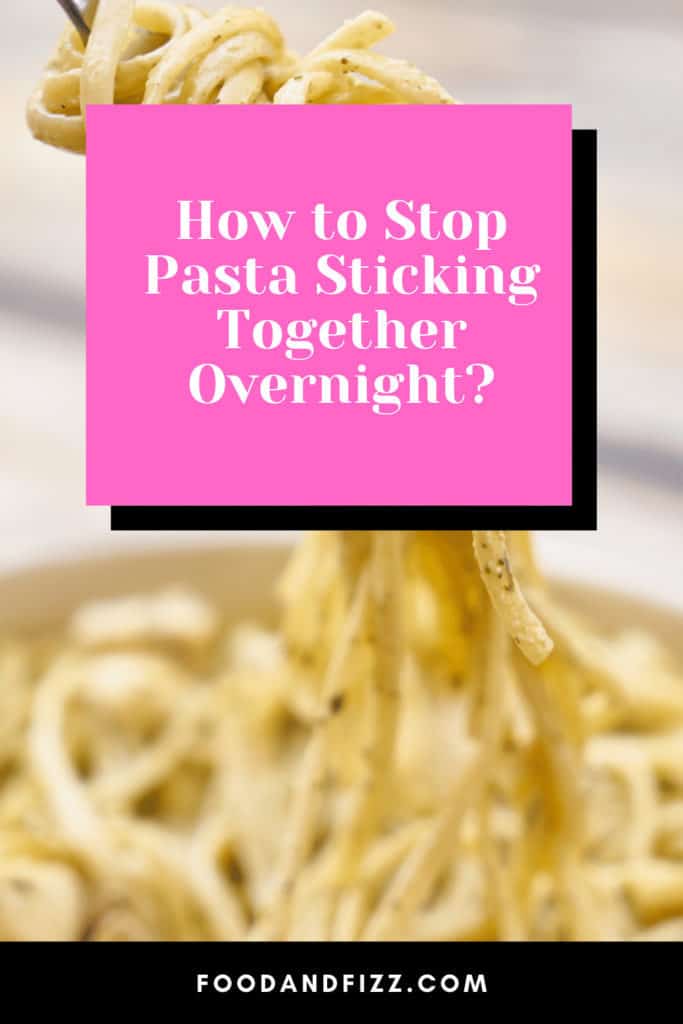
Cooking Your Pasta By Following the Directions
The first step in making sure that your pasta noodles do not stick together overnight is proper cooking practices. Because every type of pasta requires different cooking times and methods, it is important to follow the directions when making pasta. If you overcook your pasta, your pasta will stick together and fall apart even before storing it overnight.
Once you go to store overcooked pasta, the pasta has absorbed so much moisture during the cooking process. The added moisture will cause your pasta to stick together. Depending on just how overcooked your pasta was, you may come to find an unsalvageable mess the next morning.
It may not seem like a big deal, but the pot that you cook your pasta also affects the outcome. If you cook your pasta in a pot that is too small, your pasta will come out mushy because of the lack of space. It has to expand/ You need to be able to have enough water for your pasta to expand, without it being packed into a small pot.
You can also add olive oil during the cooking process. Adding a pinch of salt and a tablespoon of olive oil once your water comes to a boil will coat your noodles and prevent them from sticking together.
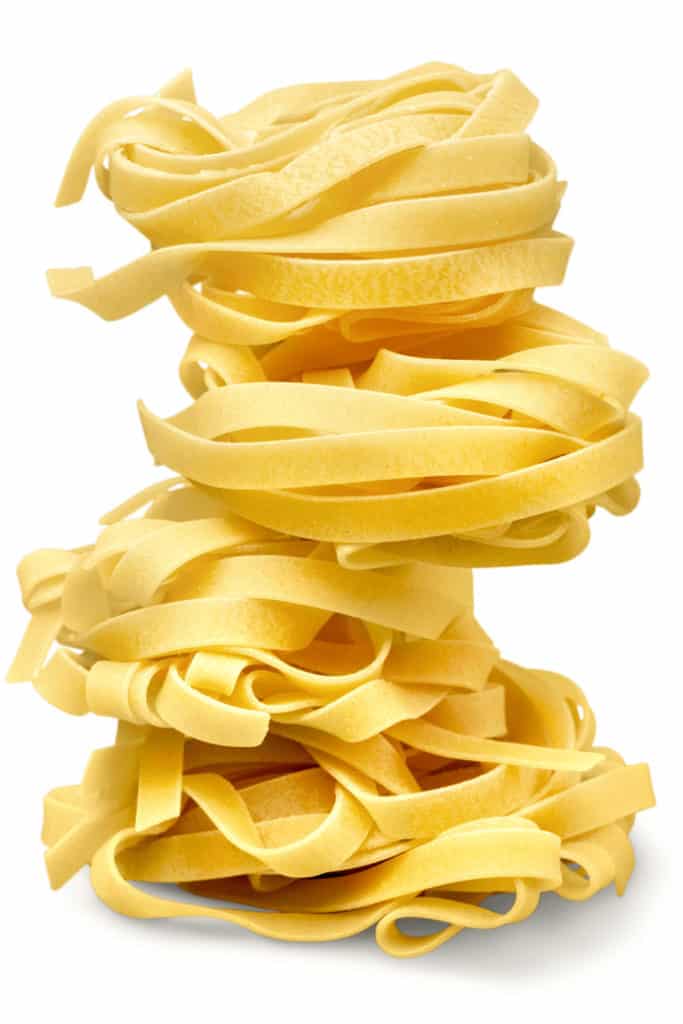
Rinsing Your Pasta Noodles
Rinsing your pasta in cold water can help prevent your pasta from sticking when you store it in the fridge. Using a colander, toss your pasta under cold water for at least a minute. The cold water causes the pasta to contract. When the pasta is contracted, it is less likely to stick together overnight because there is no heat left in your pasta.
After you rinse your pasta with cold water, you can also gently pat it dry with a paper towel. While this step works better for certain kinds of pasta, it ensures that there is no moisture left to cause the noodles to stick together. If you’re worried about dry noodles the next morning, you can reheat your pasta with a little bit of liquid or mix it in with the sauce.
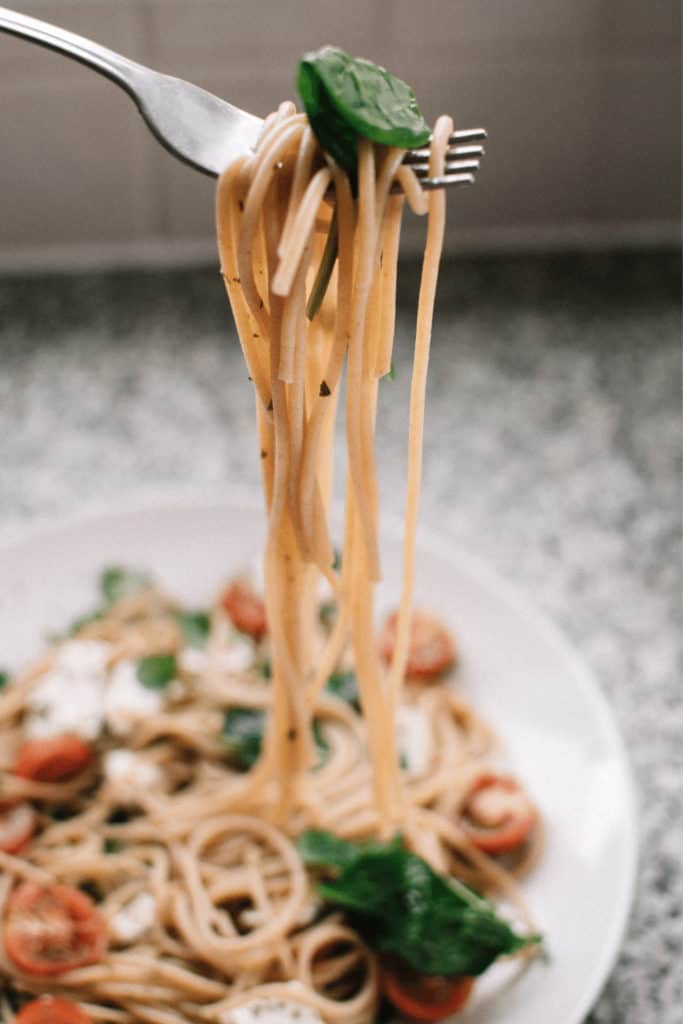
When you store pasta that even has a little warmth left, that added heat will disperse once you put your pasta into a container and cause it to stick together. Condensation on the inside of your container lid means there was too much heat when you stored your pasta the night before.
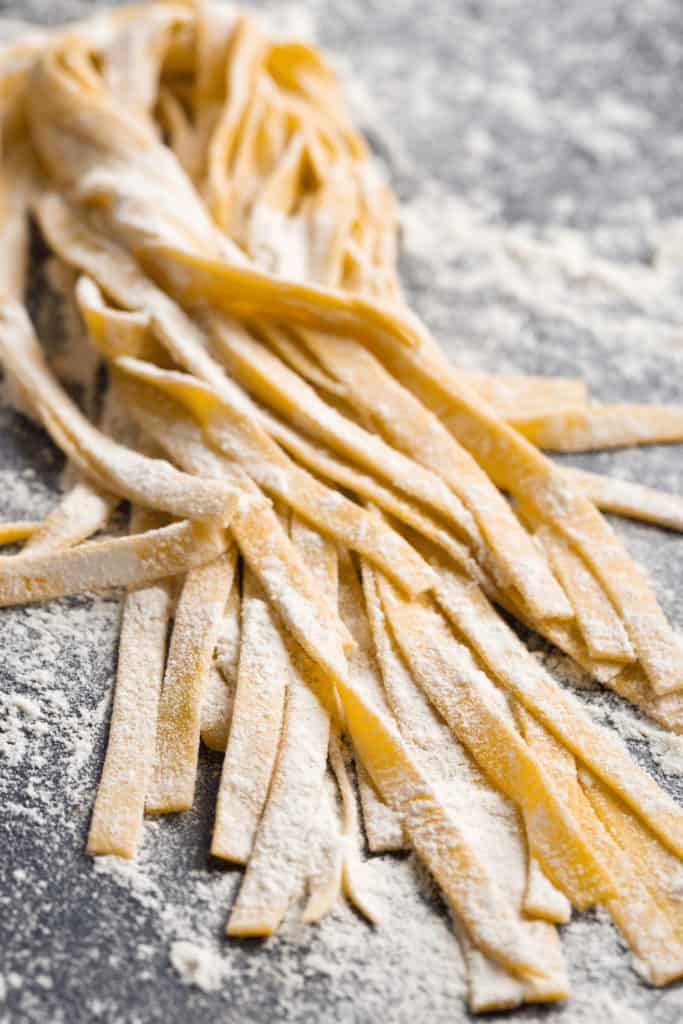
Picking the Right Container
The container that you store your pasta in is important. You want to pick an air-tight container. If it is not sealed properly, moisture from your fridge can get in. This will cause the noodles to gain unnecessary moisture and stick together.
You also want to make sure that the container that you select isn’t too small. If you have to pack your noodles into a container before putting the lid on, your pasta will cool unevenly. Heat can end up trapped in the center of the container. This heat will slowly disperse as it cools. As a result, you will find that your noodles are stuck together the next day.
The best container to select is a glass or plastic container that has enough space that you can close the lid without it touching your pasta.
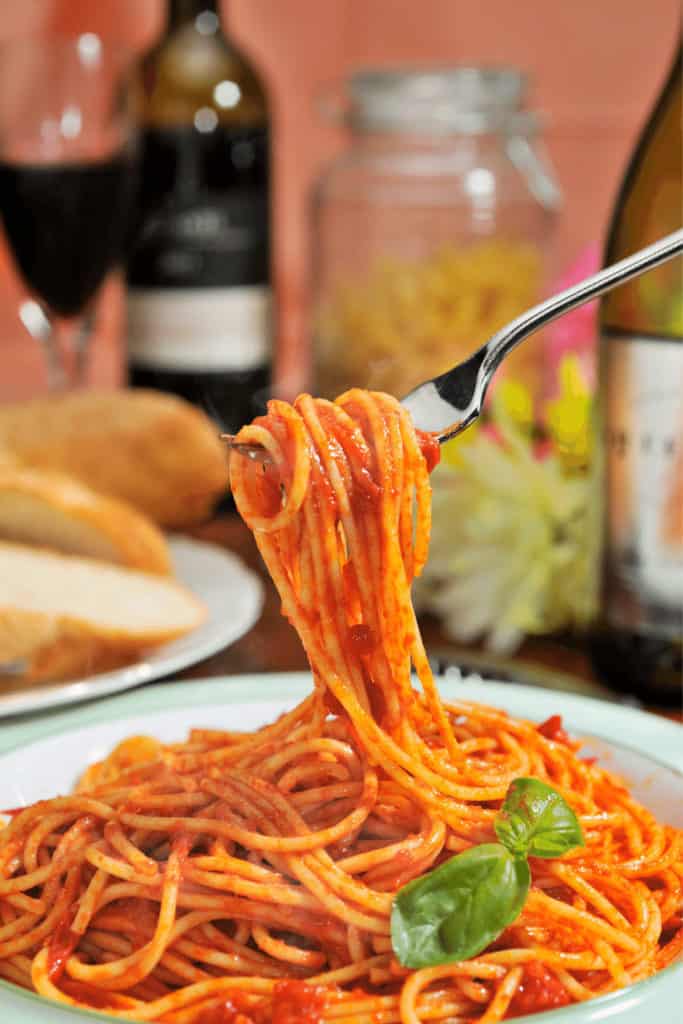
Frequently Asked Questions About How to Stop Pasta Sticking Together Overnight
Will storing my pasta with sauce make my noodles stick together?
If you store your pasta with the pasta sauce that you served it with, your noodles won’t necessarily stick together. Depending on the type of pasta and the liquid content in the sauce, you will notice that your pasta is mushy. Your pasta will continue to absorb any added moisture, so storing it with a highly liquid sauce may produce less than the desired results.
How do I stop gluten-free pasta from sticking together overnight?
Gluten-free kinds of pasta can be tricky. Depending on what your pasta is made of, it may be more likely to stick together. This is usually the case with rice pasta. Rinse your gluten-free pasta under cold water for at least a minute and then pat it dry with a paper towel. It will be drier than non-gluten-free kinds of pasta. When you go to reheat it, use some sort of liquid.
Conclusion About How to Stop Pasta Sticking Together Overnight
There are a few ways that you can prevent your pasta from sticking together overnight. The most important step is to make sure that you cook your pasta properly. If your pasta is mushy in the beginning, it is very difficult to prevent it from sticking together once you store it overnight.
Before storing your pasta, run it in cold water. You want to toss it slightly to make sure that all of your pasta has cooled. Lastly, the container that you select plays a big part in preventing pasta from sticking together as well.

